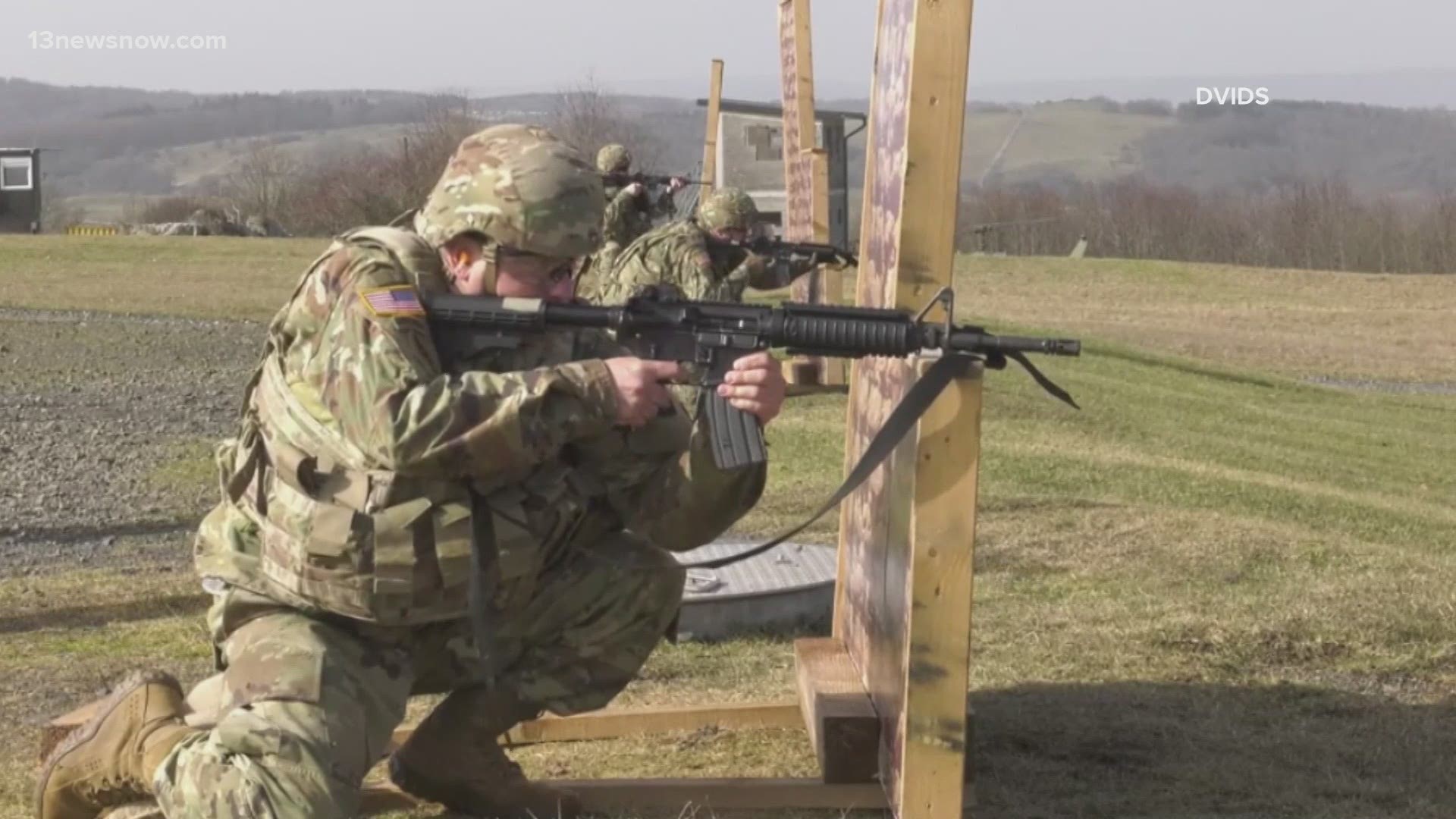WASHINGTON — Thirty-seven of the 312 rioters arrested in connection with the January 6 insurrection at the U.S. Capitol were current or former military members, including a retired Air Force Lieutenant Colonel and an active Virginia National Guard soldier.
A Pentagon report released earlier this March said domestic extremist groups pose a serious threat to the military by seeking to recruit service members into their ranks, and in some cases, joining the military to acquire combat experience.
"This is not a new problem," said Lecia Brooks, the chief of staff for the Southern Poverty Law Center. "SPLC has been documenting white supremacists' infiltration of the military and urging officials to take action since 1986."
The House Armed Service Committee on Wednesday held its first hearing examining "extremism in the armed forces."
"You pledge an oath to the Constitution and to these laws," said the panel's chairman, Rep. Adam Smith (D-Washington). "They must be upheld and you must respect them in order to adequately serve within the military. And we have seen a rise in people who don't believe that way."
Rep. Jim Langevin (D-Rhode Island) agreed that there was a serious problem.
"We want to make sure that we address this and nip it in the bud so that it doesn't spread and corrode further," Langevin said.
But Republicans on the committee pushed back.
"Where's the data and evidence that suggests that extremism in any form is rampant, major and systematic, and is a problem?" asked Rep. Pat Fallon (R-Texas).
The ranking Republican on the committee, Rep. Mike Rogers (R-Alabama) also said "evidence" was the sticking point.
"It is also important to point out that we lack any concrete evidence that violent extremism is as rife in the military as some commentators contend," Rogers said.
The hearing came as the armed forces were completing a 60-day stand-down, ordered by Secretary of Defense Lloyd Austin, to address extremism.
Pentagon spokesman John Kirby said Austin was looking at everything - from recruiting to training to leadership - when it comes to how the military deals with extremism, going forward.
The stand-down is scheduled to expire on April 1.


